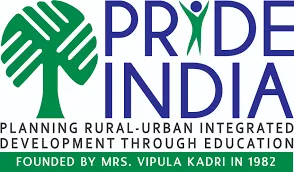
Baseline Study at Pali Village , Pride India
India, with over 50% of its population in rural areas, echoes Gandhi’s belief that true progress lies in village development. Challenges like poverty, unemployment, limited education, healthcare access, and sanitation persist. Gandhi’s 18-point mission for Sewagram inspired holistic village development, a goal modern initiatives like MGNREGA, DDAY, NLRM, and PM Awaas Yojana aim for but haven’t fully achieved. PRIDE India, active in eight Maharashtra districts across 1040 villages, focuses on holistic community development. In Raigad district’s Sudhagad Pali block, their Rural Development Program, funded by Mahanagar Gas Limited, expands to create model villages, aligning with the vision of comprehensive rural development. This baseline study aims to assess vital indicators such as demographics, socio-economic conditions, and governance, providing insights into ground realities to inform targeted interventions. Data collection was conducted through interviews with 741 samples chosen by simple random sampling, ensuring a 95% confidence level and a 5% margin of error. Key findings from the study highlight significant challenges, including 29% of people still living in kutcha houses, 11% without electricity, only 4% reaching graduation level, 37% lacking water tap facilities, around 50% not practicing hand washing after toilet use, and only 4% participating in livelihood training programs due to a lack of awareness. The study recommends addressing basic needs such as water, energy, education, and sanitation. Recognizing education as key to economic and social development, providing education to marginalized communities is crucial to enabling upward social and economic mobility. Additionally, there is a need for awareness programs focusing on health and sanitation to comprehensively address identified challenges.

